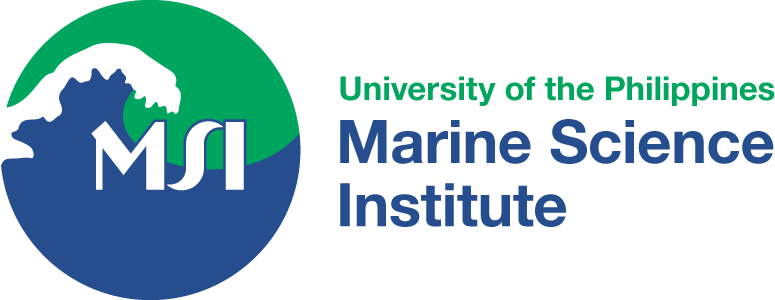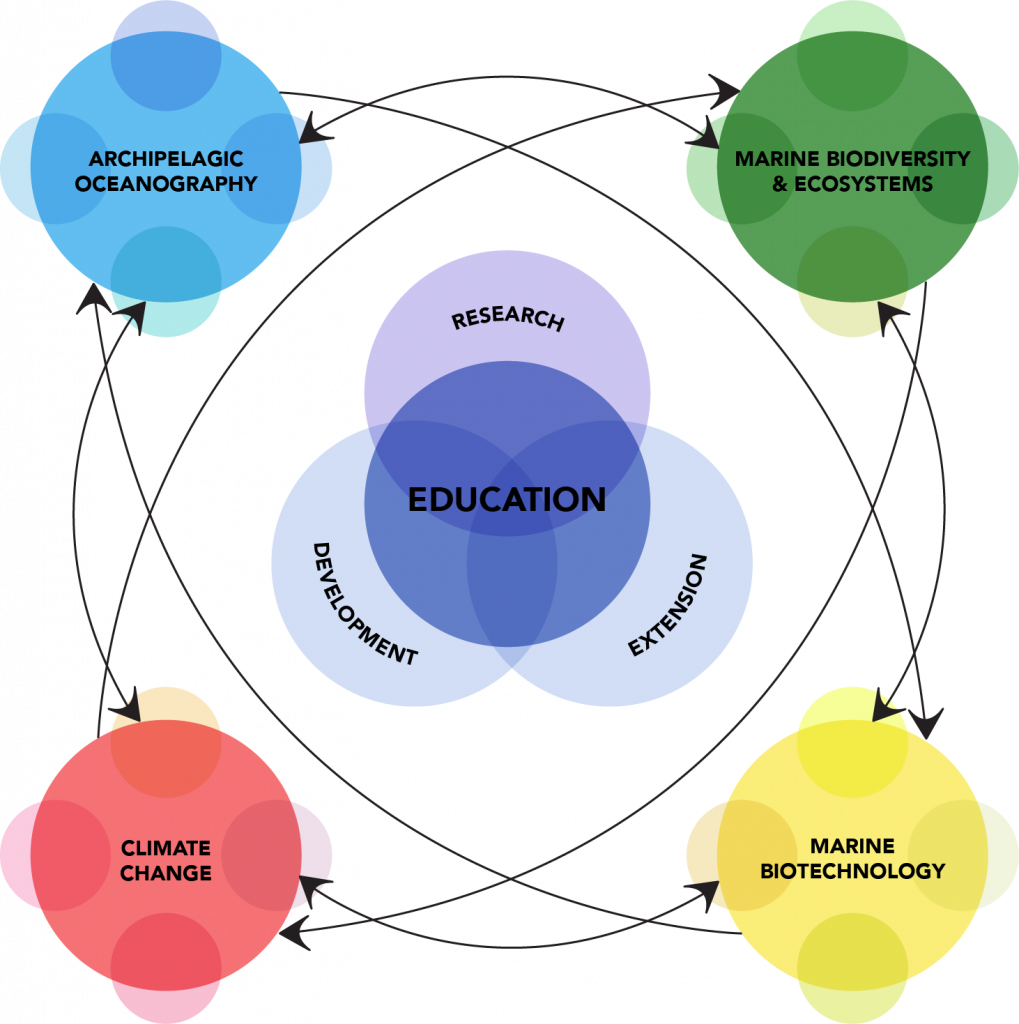AREAS OF RESEARCH
The waters surrounding the archipelago are valuable resources to the Philippines. The UP Marine Science Institute empowers the marine sector by addressing various research gaps and by promoting the sustainable use of marine and coastal resources. From the surveillance of oceanic ecosystems to the development of marine-based technologies, the UP MSI designs and implements research programs that tackle problems in ecology, oceanography, biology and biochemistry, geology, and conservation.
For a more integrated approach to solving these problems, the research, development, and extension endeavors of the UP MSI revolve around four multidisciplinary themes: marine biodiversity and ecosystems, archipelagic oceanography, marine biotechnology, and climate change.

